EAT IN ASIA / Lifestyle / Recipes
Pastéis de Nata - recipe - How to make it - step by step
Tags: PORTUGAL
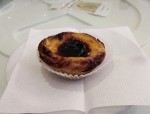
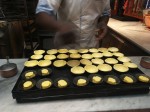
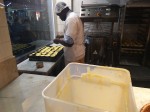
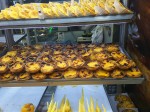
The most famous Portuguese dessert is now possible to be done by you! Although it is not the easiest recipe, it is worth trying and making some effort to bake them. Check the recipe and enjoy its unique flavor at home.
What do you need for preparing Pastéis de Nata?
Ingredients:
For the dough (phyllo pastry like dough):
- 500 g flour
- 300 ml water
- 10 g salt
- 400 g margarine
For the custard:
- 500 ml milk
- 275 g sugar
- 35 g flour
- 5 egg yolks
- 1 whole egg
- 1 tsp margarine
- pinch of salt
For the garnish:
- powdered sugar
- cinnamon
Directions:
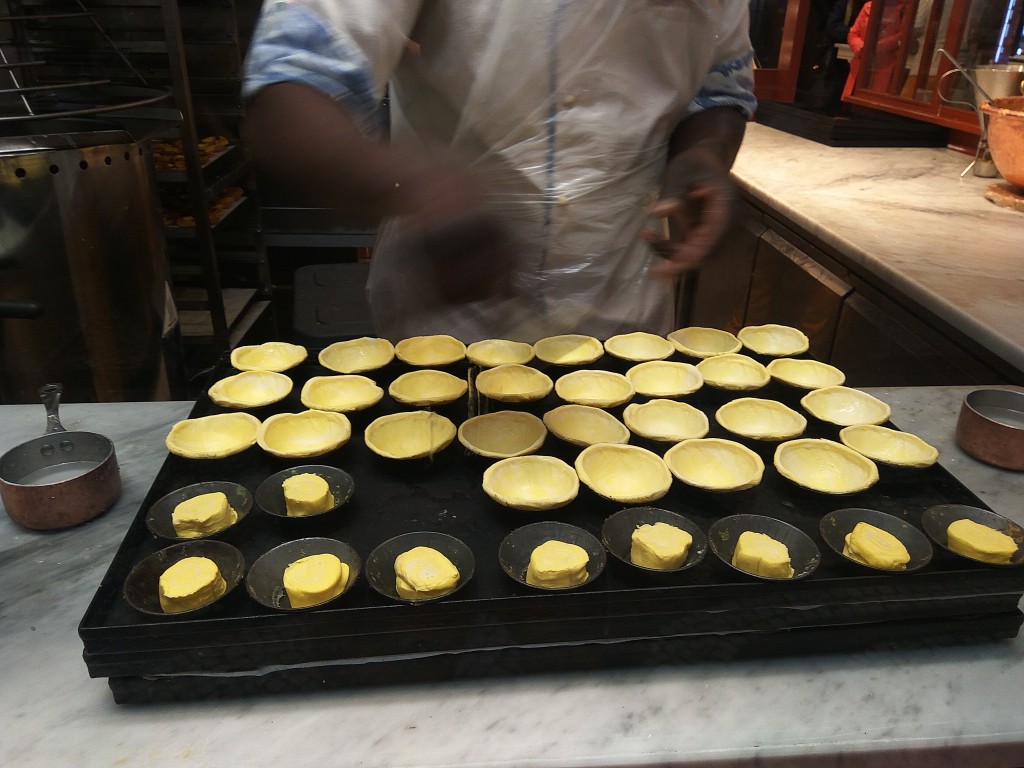
Phase 1: (dough)
- take a big bowl and put flour in it
- add salt and water
- mix it well (until you get a soft dough) – you can use a mixer
- on a pastry board put some flour
- put the dough in the floured area
- form the dough into a square
- sprinkle the dough with flour and cover with cling foil
- leave in a room temperature for 15 – 20 minutes
Phase 2:
- roll the dough (your dough square should triple the size)
- prepare 1/3 of margarine
- spread it on the 2/3 of the dough (leaving 2 cm clean border along the edge)
- fold the remaining 1/3 of the dough over the buttered area
- pat down the dough, so that all air bubbles disappear
- pinch edges
- roll the dough till you get the previous size of the pastry
- once again butter 2/3 of the dough with the next 1/3 of the margarine
- fold the remaining 1/3 of the dough over the buttered area
- pat down the dough, so that all air bubbles disappear
- once again roll the dough, this time form a bigger rectangle than the previous square
- butter the whole dough with the last 1/3 of the margarine
- roll the dough and form a tight roll
- cut the dough into 2 pieces
- wrap each of these parts with a foil
- put the dough to the fridge for at least 2 hours (you can prepare the dough the day before, so that it stays in the fridge for overnight)
Phase 3: (making the custard)
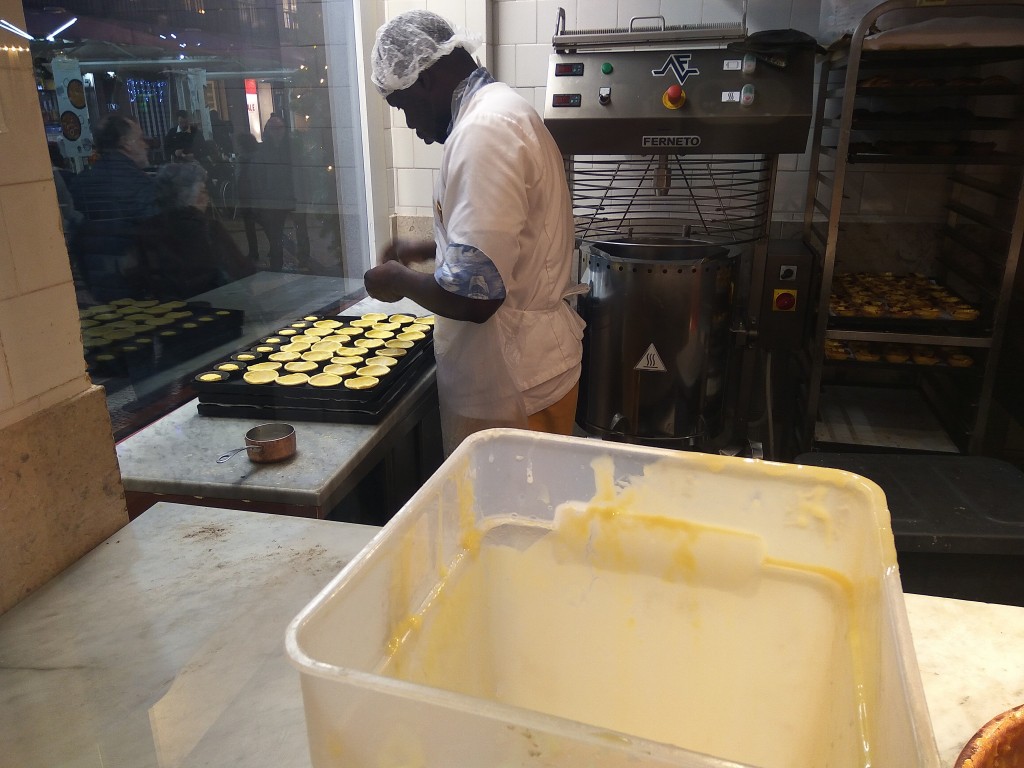
Pot 1: (flour, milk)
- take a medium size pot and put flour into it
- add 100 ml to it and mix it well
Pot 2: (sugar, water, cinnamon)
- take another pot and put sugar into it, add water and cinnamon
- bring to boil and cook, do not stir it while boiling, boil for a couple of minutes
Pot 3: (milk)
- take another pot and pour into it the remaining portion of milk, heat it
Phase 4:
- add the content of the Pot 3 (warm milk) to the Pot 1 (flour and milk)
- slowly heat the mixture, keep it on a slow fire
- remove the cinnamon stick from the sugar syrup (Pot 2)
- add the content of the Pot 2 (sugar syrup) to the warm milk-flour mixture (combined Pot 1 and Pot 3), pour it slowly and mix quickly
- add vanilla
- stir the mixture while heating it, do not overheat it
- add egg yolks to the mixture and mix it
- remove from fire and put the so prepared custard into a bowl
- cover with a cling foil
Phase 5: (baking pastries)
- heat the oven to 290°C
- take the pastry roll from the fridge
- roll it till you get a 2 cm wide stripe
- divide into 1.5 – 2 cm pieces and place them one by one in a muffin form and form pastry cups with the dough, let the dough cup go over the muffin form (if the dough is not soft enough, wait and let it soften so that is elastic)
- take the bowl with the custard (cool) and fill each muffin in 75% with it
- bake about 15 – 20 minutes, depending on the size of muffins (pastéis are ready when their edges are golden brown)
- remove pastéis from the oven
- do not remove them straightforwardly from the muffin form, let them cool a couple of minutes
- after that time take them out of the muffin form and cool till they are a little bit warm
- sprinkle with powdered sugar and cinnamon
Bom apetite!
Date: 2020-02-07
Author: Beti – A passionate traveler and lover of Asian cuisine, especially Thai and Japanese dishes, Bernadeta brings her culinary and cultural experiences to life in her writing. Beyond her travels, she’s an avid technology enthusiast with a deep interest in data processing, merging her love for exploration with analytical insights.
Photographer: Adalbert – An aficionado of computers and photography, Adalbert captures the essence of diverse cuisines with a discerning eye. A connoisseur of rich flavors and particularly fond of meat-based dishes, he combines his technical skills with his passion for the culinary arts in every shot.









